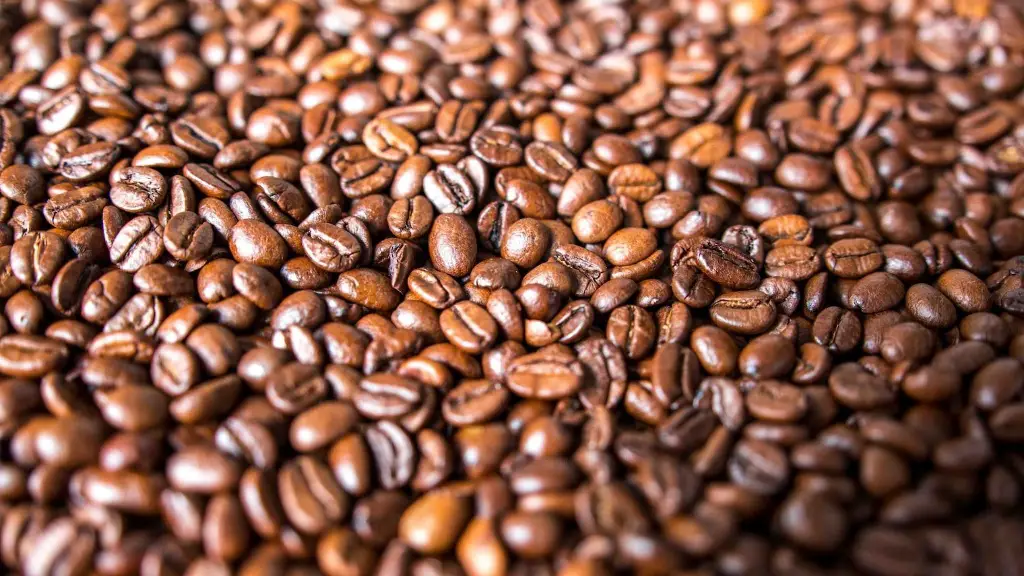How Does Caffeine Impact Our Bodies
Coffee is a popular beverage around the world, and it also happens to contain caffeine, a powerful stimulant. For many of us, our morning java is a source of energy and a kickstart to our day – and for some, it can also be the source of a headache. So just why is it that some people experience a headache after drinking coffee? To answer this, it helps to understand how caffeine affects our bodies.
Caffeine acts on our nervous system, blocking the action of a neurotransmitter known as adenosine. Neurotransmitters are the chemicals that our cells use to send signals to each other, and ordinarily, Adenosine signals our body to relax, slow down, and become sleepy. When caffeine blocks adenosine signals, our bodies respond with an increase in adrenaline and cortisol levels – the ‘stress hormones.’ This explains why some people experience a jolt of energy after drinking coffee: the stimulation of these hormones cause us to feel wide awake, focused and alert.
While a bit of stimulation is one thing, too much has consequences. When our body is overwhelmed with too much caffeine, it can create a ‘caffeine overload’ – thus triggering a headache. Depending on a person’s sensitivity and tolerance to caffeine, too much of it can cause large blood vessels to dilate, leading to increased blood flow in the head which many people experience as a headache.
Other Reasons For a Coffee-Induced Headache
In some cases, the cause of a coffee-induced headache has nothing to do with the caffeine content itself, but rather other factors related to the consumption of coffee. One of the most common of these is dehydration: drinking coffee can cause the body to quickly lose fluids, leading to dehydration which can cause headaches and other ailments.
Another factor that can trigger a headache after drinking coffee is the presence of other compounds, such as cafestol and kahweol. These compounds can irritate the lining of the digestive tract and cause headaches. As a general rule, people tend to experience fewer headaches when drinking brewed coffee as opposed to espresso, due to the fact that espresso contains higher concentrations of these compounds.
Finally, the amount of sugar and other ingredients that are sometimes added to coffee can also be a trigger. Sugar can cause blood sugar levels to drop, which can then cause a headache, while artificial sweeteners can be toxic in the body and cause headaches as well.
Tips For Avoiding Coffee-Induced Headaches
Fortunately, there are a few simple steps that can be taken to reduce or prevent headaches after drinking coffee. First, try limiting daily consumption to just one or two cups of coffee, and if consuming more than that, spread out the cups over several hours. It is also important to avoid adding too much sugar or artificial sweeteners.
Replacing regular coffee with decaffeinated coffee is also a good option. While decaf does contain some caffeine, it is much less than regular coffee and should not trigger headaches in most people.
Finally, making sure to stay hydrated is key. It is important to stay hydrated both before and after drinking coffee, and to try not to exceed one or two cups a day, as this can lead to over-caffeination and a possible headache.
How Personality Affects Sensitivity to Coffee
One other factor that can affect coffee-induced headaches is a person’s personality type. While research on the topic is still ongoing, many studies indicate that people who are highly sensitive and anxious are more likely to suffer headaches after consuming coffee.
It is thought that one of the reasons for this is due to the stimulating effects of caffeine. People who are already prone to anxiety or high-levels of sensitivity can easily become overwhelmed by the stimulating effects of the caffeine, and end up triggering a headache.
Are There Any Health Benefits to Coffee?
Despite the potential headaches it may cause, coffee also has several potential health benefits. For starters, it is thought to be beneficial to heart health, as several studies have indicated that coffee-drinkers have a lower risk of developing cardiovascular diseases.
In addition, coffee is known to be rich in antioxidants, which help to neutralize harmful free radicals in our bodies. Coffee is also high in beneficial B-vitamins and minerals such as potassium and magnesium, which help to regulate several bodily processes.
Finally, coffee is also thought to be beneficial to cognitive function and mental health. Studies have found that coffee can improve alertness, focus, and reaction time, as well as help to reduce symptoms of depression.
Caffeine Tolerance and Sensitivity
The ability of a person to consume coffee without suffering from a headache depends to a great extent on their caffeine tolerance and sensitivity. Each person’s tolerance to caffeine is unique and can be affected by various factors such as age, health, lifestyle and genetics. Some people are more sensitive to caffeine, and should thus limit how much coffee they drink in order to reduce the risk of developing a headache.
Can Caffeine Withdrawal also Cause Headaches?
Coffee-induced headaches may also result from caffeine withdrawal. It is thought that when people suddenly stop drinking coffee after having consumed it regularly, their bodies can react by sending out a ‘withdrawal signal’, which can induce headaches. As such, people should try to wean themselves off coffee slowly rather than abruptly.
What to Do if You Experience a Coffee-Induced Headache
If you experience headaches after drinking coffee, the best thing you can do is to reduce your consumption of it. Try drinking smaller amounts of coffee and spread them out throughout the day, or replace regular coffee with decaf. Additionally, it can help to stay adequately hydrated to reduce dehydration, and avoid adding excessive amounts of sugar or artificial sweeteners.
If these measures don’t help, then you may need to consider cutting down on your consumption of coffee, or substituting it with other beverages such as herbal teas, juices or smoothies. Finally, in some cases, it may be helpful to seek the advice of a doctor or healthcare provider.


